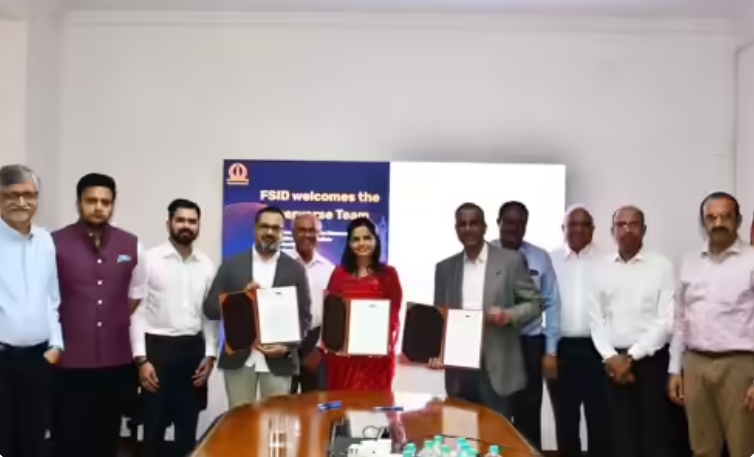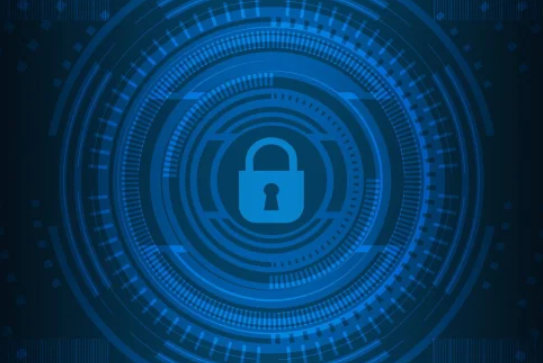Publication: CISO Forum (part of CIO & Leaders) / Link: https://reurl.cc/9ndlp8
As India’s digital economy surges ahead, a dangerous gap is widening between innovation and protection. Srinivas Shekar, CEO of Pantherun Technologies, warns that the nation’s rush to connect systems is outpacing efforts to secure them. In this exclusive conversation, Shekar reveals why the future of cybersecurity lies not in software patches, but embedded directly into silicon chips—creating tamper-resistant, lightning-fast defenses from the ground up. With quantum computing looming and AI-powered threats multiplying, he outlines India’s race to build a sovereign cybersecurity ecosystem through strategic partnerships with global tech giants and national champions. The stakes? Nothing less than protecting critical infrastructure while establishing India as a worldwide hub for trusted, indigenous security solutions.

CEO and Co-founder Pantherun Technologies
CISO Forum: India’s digital economy is expanding faster than its cyber defenses. What’s the most critical vulnerability you see emerging from this rapid acceleration?
Srinivas Shekar: India’s digital growth has been phenomenal, but what we can see is that security isn’t keeping pace with innovation. The most significant risk is the gap between the speed at which we are connecting systems and the pace at which we are protecting them. Every new user, device, and service adds to the potential points of attack. Another challenge is complexity. Many tools and systems are not connected, which slows detection and leaves gaps that attackers can exploit. The rise of IoT devices and AI-powered operations adds to this challenge.
The solution is to treat security as a core part of digital growth. Only then can India’s digital progress be safe and sustainable.
CISO Forum: Most cybersecurity still happens in software. What makes embedding defense mechanisms directly into chips a game-changer, and how does it redefine speed, trust, and scalability?
Srinivas Shekar: Shifting cybersecurity into the silicon is the way. The industry views it as a total game-changer because foundational protection, such as secret key storage, is moved out of easily attacked software and directly into the chip’s tamper-resistant hardware.
This fundamentally redefines trust. Security is a physical, verifiable guarantee rooted in the hardware itself. Regarding speed, dedicated chip accelerators can process high-volume encryption significantly faster than general-purpose CPUs, ensuring zero performance penalty for top-tier security. Ultimately, this addresses scalability by delivering a robust and consistent defense that is built into every device, from IoT sensors to cloud servers, from the moment of manufacture, establishing a uniformly higher standard across massive digital estates.
CISO Forum: With quantum computing on the horizon, how prepared is India’s critical infrastructure, including telecom, railways, and defense, for this new class of AI- and quantum-powered attacks?
Srinivas Shekar: The consensus is that it’s a race against the clock. While India’s critical sectors, such as telecom, railways, and defense, aren’t immediately vulnerable, the “harvest now, decrypt later” threat is a genuine concern. Recognizing this, the government, particularly through the National Quantum Mission (NQM) and CERT-In, has launched a strategic roadmap for quantum-safe cybersecurity. The focus now is on Post-Quantum Cryptography (PQC) migration, auditing existing systems for cryptographic vulnerabilities, and building indigenous capabilities; however, the actual, complex, and large-scale implementation across sprawling legacy infrastructure is still in its early stages. Therefore, a strong plan is in place; however, transitioning to sustainable methods that do not overstrain infrastructure, break budgets, and increase environmental impact is essential. There are methods, such as Keyless AES, that can achieve this more sustainably, reducing excessive dependence on PQC algorithms. Thus, judicious decision-making is critical.
CISO Forum: Most enterprises focus on regulatory checklists. How can organizations move from compliance-driven security to true operational resilience?
Srinivas Shekar: Organizations aiming to transition from a narrow focus on regulatory compliance checklists to genuine operational resilience must fundamentally redefine their approach to security. This shift requires embedding security principles deeply within core business processes and moving beyond simply “checking the box.” Instead of the periodic, reactive compliance audit, the industry is championing a continuous, proactive approach to enterprise risk management, sophisticated threat modeling, and ongoing monitoring of critical assets. The pivotal question evolves from “Are we compliant?” to the far more robust “Can we maintain and rapidly restore business function when an inevitable security incident occurs?” Achieving this requires a holistic strategy that leverages intelligent automation and fosters seamless collaboration across all functional teams, making security an intrinsic, pervasive element of daily operations.
CISO Forum: With partnerships spanning AMD, Intel, and national projects such as ONGC and Bharat Electronics, how do you envision India shaping its own sovereign cybersecurity ecosystem over the coming decade?
Srinivas Shekar: India’s sovereign cybersecurity journey this decade points clearly toward Secured Autonomy.
The system is being built through strategic engagement, with major technology companies like Qualcomm, AMD, and Intel playing a crucial role in integrating deep, “silicon-to-software” security. Meanwhile, national endeavors led by ONGC and Bharat Electronics (BEL), combined with the strategic use of startups, secure critical national infrastructure. This collaboration is creating a truly self-reliant foundation. By prioritizing indigenous control over core hardware and source code, India is uniquely preparing to manage its unique digital risks. It is on track to become a significant global source of trusted, natively engineered security solutions.
About Pantherun:
Pantherun is a cyber security innovator with a patent pending approach to data protection, that transforms security by making encryption possible in real-time, while making breach of security 10X harder compared to existing global solutions, at better performance and price.



